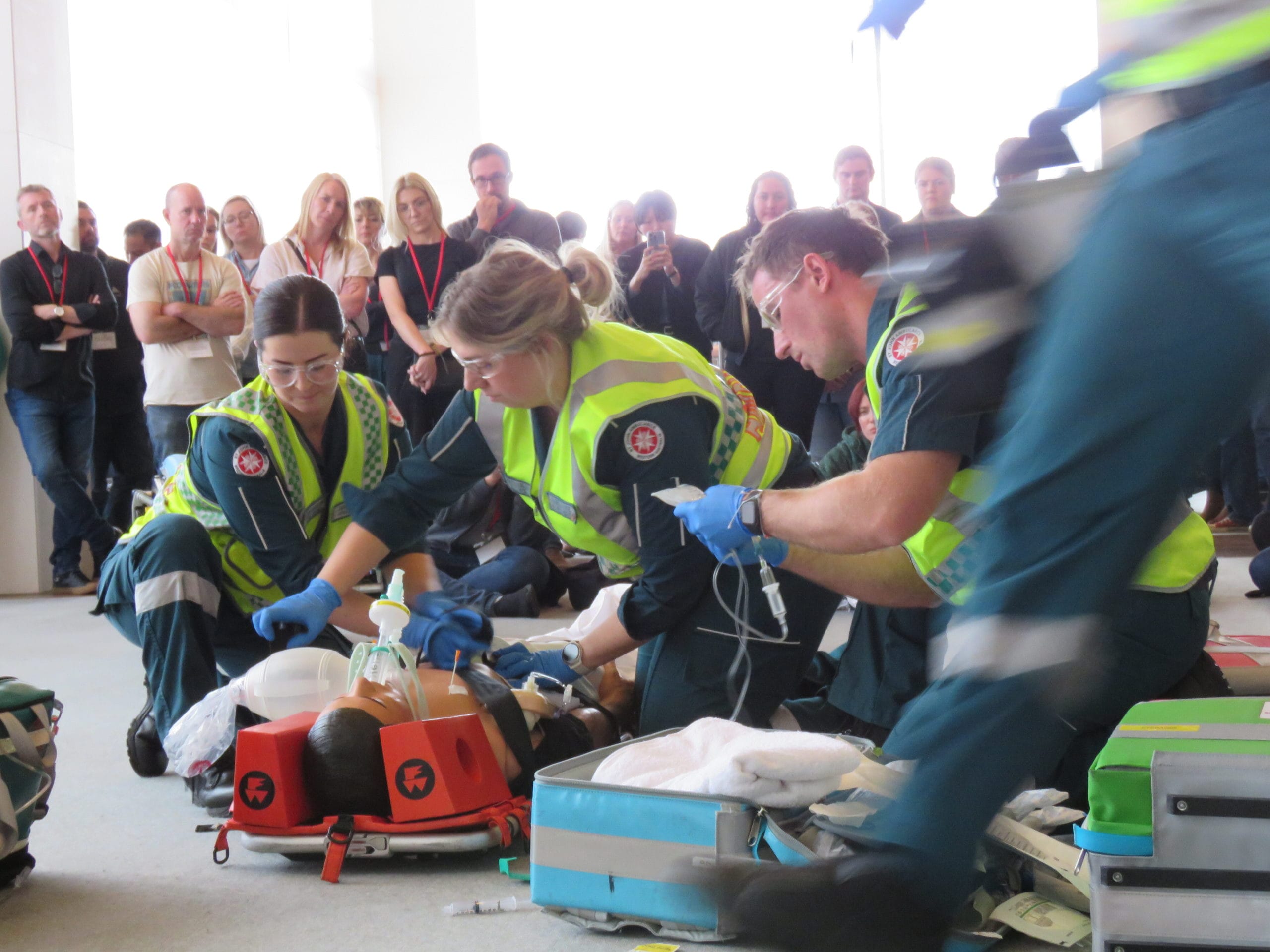Leaders in trauma care share insights at WA conference
A leading Singaporean trauma surgeon and a former SAS soldier turned expert in resilience shared their unique insights at the WA State Trauma Conference this month.
The conference returned on October 5 after a two-year hiatus with the goal of uniting and inspiring medical professionals from across WA’s healthcare community.
Organised by St John WA for the first time, in collaboration with the state trauma team at Royal Perth Hospital, the packed one-day event explored the evolution of trauma care in WA and globally.
Surgeon and Professor Teo Li-Tserng delivered the keynote address, offering an inside look at his work leading one of Singapore’s largest trauma centres at Tan Tock Seng Hospital.
Professor Teo has forged a distinguished career in trauma and acute surgical care, including coordinating complex multi-disciplinary trauma care in hospitals around the country and during significant humanitarian disasters.
Former elite soldier and The Resilience Shield co-founder Tim Curtis shared his insights on teamwork and resilience.

Futurist Gihan Perera explored the importance of integrating technology into trauma care, focusing on how digital tools can enhance efficiency and patient outcomes.
The conference also featured presentations from SJWA Medical Director Dr Gayle Christie, Extended Care Paramedic Intern Dr Elizabeth Brown and Royal Perth Hospital Head of General Surgery and Director of Trauma Dr Dieter Weber.
SJWA Health Alliance Engagement Manager Damian Jolly said the conference aimed to build sustainability, resilience and teamwork among professionals responding to trauma.
“Trauma care is a critical aspect of healthcare because trauma, whether from accidents, violence, or medical emergencies, can lead to life-threatening injuries that require rapid, coordinated, and expert intervention,” he said.
“Discussing and reflecting on trauma care is vital because it promotes continuous improvement, enhances team collaboration, and ensures better patient outcomes across the healthcare sector.”
